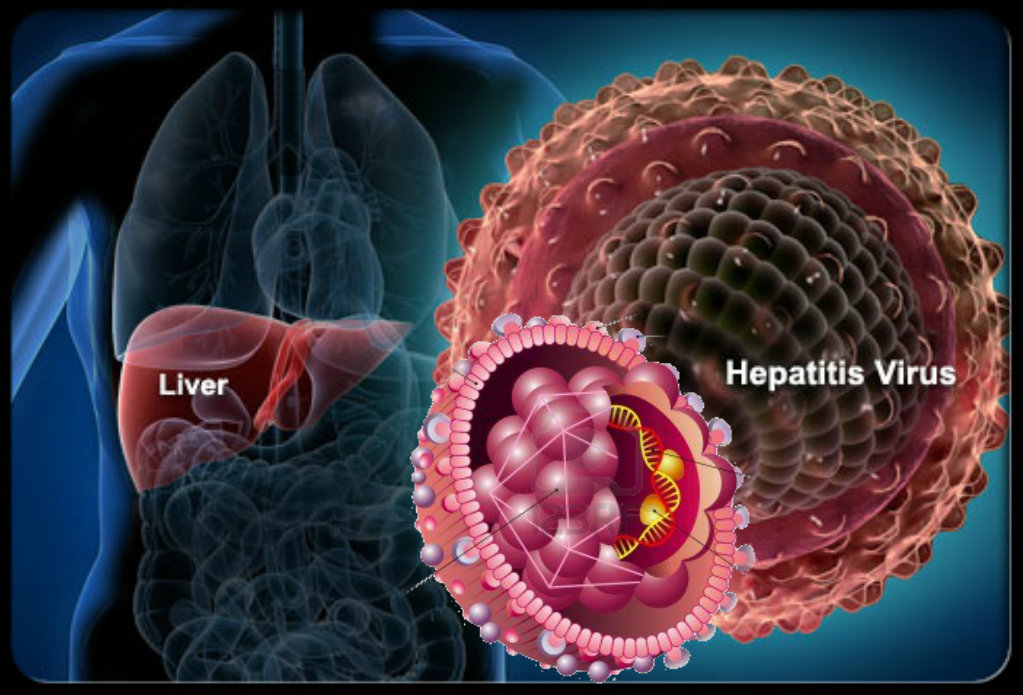FREETOWN, Aug 1 (232news.com) – Globally, 325 million people live with hepatitis, with more than 1.1 million lives lost each year to hepatitis B and hepatitis C1. Hepatitis is one of the most deadly and neglected diseases and health crises – one that is claiming a life every 30 seconds. By 2040, deaths from viral hepatitis are expected to exceed mortality from HIV, malaria, and tuberculosis combined2. Viral Hepatitis B and C are the most dangerous, that could cause chronic liver disease, liver cirrhosis and liver cancer among those susceptible. In fact, Chronic hepatitis B and C infections are the leading cause of liver cancer. Hepatitis B which is more common in Sierra Leone is transmitted through contact with the blood or other bodily fluids of an infected person. Hepatitis C is mainly spread through blood-to-blood contact such as unsafe injection practices and inadequate sterilisation of medical equipment. Signs and symptoms of Hepatitis B & C depends on severity of disease. Common presenting signs and symptoms at initial stage include like fever, tiredness, body aches, loss of appetite, dark urine, light coloured stool for Hepatitis B, bone pain, pins and needles at extremities, muscle pain, itchiness etc.
Today, World Hepatitis Day (WHD) launches the campaign theme ‘I Can’t Wait’. On WHD, the World Hepatitis Alliance (WHA) joins together with its global network of 320 members (KnowHep Foundation Sierra Leone as member) in 100 countries to lead the campaign internationally to accelerate the fight against viral hepatitis.
The ‘I Can’t Wait’ campaign theme builds on the previous Hepatitis Can’t Wait global campaign, and highlights the social injustice and inequity caused by the current lack of action on hepatitis elimination and focus on the positive action needed to get on track to meet the WHA’s 2030 elimination goals. The campaign will amplify the voices of people affected by viral hepatitis calling for immediate action from decision makers globally to prioritise the elimination of viral hepatitis.
About World Hepatitis Day
I Can’t Wait’ is the campaign theme for WHD 2022 which takes place today 28th July. WHD will bring World Hepatitis Alliance and its global network together to lead the campaign internationally. With a person dying every 30 seconds from a hepatitis related illness – we can’t wait to act on viral hepatitis.
• People living with viral hepatitis unaware can’t wait for testing
• People living with hepatitis can’t wait for life saving treatments
• Expectant mothers can’t wait for hepatitis screening and treatment
• New-born babies can’t wait for birth dose vaccination
• People affected by hepatitis can’t wait to end stigma and discrimination
• Community organisations can’t wait for greater investment
• Decision makers can’t wait and must act now to make hepatitis elimination a reality through political will and funding.
World Hepatitis Day comes as the world currently faces a new outbreak of acute hepatitis infections affecting children. As of 8 July 2022, 35 countries in five WHO Regions have reported 1,010 probable cases of severe acute hepatitis of unknown aetiology in children, including 22 deaths3.This new outbreak brings focus on the importance of raising awareness of this viral disease which has traditionally disproportionately affected the economically disadvantaged. An estimated 197 million of hepatitis B-positive people (~79%) live in low- and middle-income countries in the African and Western Pacific region1.
In Sierra Leone, the rate of infection due to Hepatitis B is on the increase, the number of undiagnosed cases is high. Many multicentred studies have been done in Sierra Leone on different subpopulations and prevalence of Hepatitis B is approximately 10% which denotes high endemicity. The Sierra Leone Ministry of Health and Sanitation though late, has finally started working on a National Strategic plan (NSP) for elimination. However, before an NSP is formulated and launched, a national seroprevalence study will have to be done first, in which China Centre for Disease and Control (CDC) is aiding us with.
‘As an advocate for years in the fight against this disease, on this day, I speak on behalf of all those at risk, pregnant females, including babies born from infected mothers deprived of receiving timely free hepatitis birth dose, all those infected receiving suboptimal care they do not deserve and all those that are facing stigma and discrimination. I therefore urge the government, policy makers, global funders, and decision makers to act by increasing investment and financing hepatitis elimination’.
‘I can’t wait’ for hepatitis elimination
References
1. World Health Organization, 2017. Global Hepatitis Report, 2017. Available at: https://www.who.int/publications/i/item/9789241565455. Accessed 26 July 2022.
2. Foreman, K., Marquez, N., Dolgert, A., Fukutaki, K., Fullman, N., McGaughey, M., Pletcher, M., Smith, A., Tang, K., Yuan, C., Brown, J., Friedman, J., He, J., Heuton, K., Holmberg, M., Patel, D., Reidy, P., Carter, A., Cercy, K., Chapin, A., Douwes-Schultz, D., Frank, T., Goettsch, F., Liu, P., Nandakumar, V., Reitsma, M., Reuter, V., Sadat, N., Sorensen, R., Srinivasan, V., Updike, R., York, H., Lopez, A., Lozano, R., Lim, S., Mokdad, A., Vollset, S. and Murray, C., 2018. Forecasting life expectancy, years of life lost, and all-cause and cause-specific mortality for 250 causes of death: reference and alternative scenarios for 2016–40 for 195 countries and territories. The Lancet, 392(10159), pp.2052-2090.
3. World Health Organization, 2022. Severe acute hepatitis of unknown aetiology in children -Multi-country. Available at: https://www.who.int/emergencies/disease-outbreaknews/item/20

